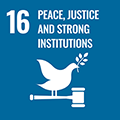Researchers within Queen’s University Belfast have had a profound, sustained and multi-layered impact upon the legal, policy and public understanding of dealing with the legacy of the Northern Ireland conflict.
Research Challenge
SHARING THE LEGACY OF A TROUBLED PAST
The conflict in Northern Ireland claimed over 3,600 lives across more than 40 years. In 2017 the Northern Ireland Victims and Survivors Commission reported that 26% of the adult population identified as victims due to harms directly experienced or through bereavement. 1,186 murders remain unresolved. In 2014, the British and Irish governments and five political parties in Northern Ireland agreed in the Stormont House Agreement (SHA) to establish four complementary mechanisms to deal with the past via Westminster legislation. They are a Historical Investigations Unit (HIU); an Oral History Archive (OHA); an Independent Commission on Information Retrieval (ICIR); and an Implementation and Reconciliation Group (IRG).
Our Approach
'FROM BELOW' EXAMINATION OF TRUTH RECOVERY
Researchers at Queen’s produced a significant body of research in transitional justice, the interdisciplinary field that addresses how societies deal with legacies of violence and human rights abuses. Their research has explored key themes including how to effect change in transitional justice through expert mobilisation ‘from below’, how to encourage effective truth recovery through amnesties, immunity and sentence reduction and the value added of oral history to reconciliation.
“Their research on trying to find human rights compliant solutions to NI legacy matters including truth recovery and national security considerations, justice, oral history and reconciliation was an invaluable resource for us… It is clear to me that their work has played a key role in anchoring the NI legacy conversations to the relevant international human rights standards.”
- UN Special Rapporteur on Transitional Justice
What impact did it make?
INFLUENCING THE PUBLIC AND POLITICAL NARRATIVES
The research team’s work has directly influenced the recent debates on legacy.
The team’s local and international research on amnesties, truth recovery and the value added of oral history to transitional justice has directly influenced efforts to deal with the past in Northern Ireland since 2014.
Working in partnership with the Belfast based human rights NGO, the Committee on the Administration of Justice (CAJ), researchers have produced a substantial body of policy-focused research which has directly impacted political negotiations in Northern Ireland, UK draft legislation and the recent deliberations of parliamentary select committees in the UK on legacy in Northern Ireland.
Research has also directly influenced the political and public debate on a statute of limitations for security force veterans who served in Northern Ireland. The impact of the work of the Queen’s research team has been acknowledged by the UK and Irish governments, Northern Ireland political parties, civil society groups (including victims and survivors) and the United Nations.
Our impact
Impact related to the UN Sustainable Development Goals
Learn more about Queen’s University’s commitment to nurturing a culture of sustainability and achieving the Sustainable Development Goals (SDGs) through research and education.










